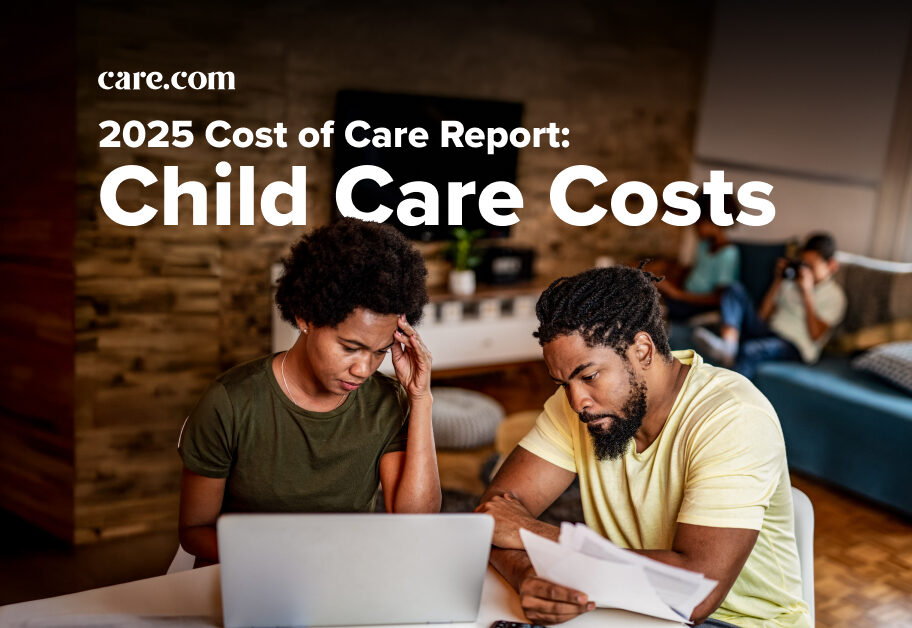In this article
If you are a parent who has suffered a deep loss of someone you love, or multiple losses, working to keep things normal for your children can be difficult, especially when you’re feeling anxious, sad or unmotivated. Grief is a normal response to loss, but for some, it can be hard to navigate the waves of grief without help, especially when you have children in your care who are counting on you every day.
Dr. Mekel S. Harris, a licensed psychologist in Memphis, Tennessee says grief is the brain’s normal response to loss but that grief for parents means trying to meet competing demands, as you try to “find balance with a deregulated nervous system and the responsibility of trying to function within a family.” Harris, also the author of “Relaxing Into the Pain: My Journey Into Grief and Beyond,” does say that the effects of grief generally lessen over time “as long as the person is taking the steps to take care of themselves.”
So how does a parent juggle this complex balancing act? How can we take care of our heartbroken selves while simultaneously taking care of our children? Experts break down grief and provide actionable tips for grieving parents on this difficult journey.
Key takeaways
- Grieving parents struggle to balance their own emotional turmoil with the responsibilities of caring for their children, often feeling physically and mentally overwhelmed.
- Experts emphasize that grieving parents must prioritize their own well-being through practices like journaling, mindfulness, physical activity and seeking support to maintain their ability to care for their children.
- Parents should share their grief with their children in age-appropriate ways, lean on support systems, and seek professional help if grief significantly disrupts daily life.
How grief affects us emotionally
Clients who are grieving often experience a range of symptoms, says Brenda Stutler, a licensed mental health counselor who specializes in grief counseling for Providence Counseling Center in Orlando, Florida. These symptoms of grief may include:
- Anxiety.
- Depression.
- Trauma.
- Post-traumatic stress disorder (PTSD).
- Flashbacks.
- Hypervigilance.
In other words, grief can make you feel like you’re losing your mind. Or, as Harris aptly explains it, “A sudden loss leaves a person unprepared emotionally, physically and spiritually and can overload emotional, mental and spiritual systems all at once.”
“A sudden loss leaves a person unprepared emotionally, physically and spiritually and can overload emotional, mental and spiritual systems all at once.”
— Dr. Mekel S. Harris, licensed psychologist
Lillian Simpson, a mom of three from Georgia, experienced the trauma of the sudden loss of her oldest son while the youngest of her two daughters was in high school. “The most difficult part of parenting in the early stages of grief was just being present — the ability to be available mentally,” she shares. “I was in a state of complete numbing emptiness.”
Even though Simpson experienced anxiety and depression, she says she didn’t reach out for help. “I didn’t seek grief counseling after my son died because I thought with time, like everyone says, it would get easier. I truly believed I could handle my darkness on my own.”
“I feel very differently about that now, Simpson adds. “I now know it’s something I should have done immediately. Everyone thinks they can handle whatever life throws at you.”
Why grieving while parenting gets extra complicated
“Parenting is a job where we are expected to show up and make quality decisions and be emotionally available for our children — have a physical presence in their lives,” says Harris. “Grief makes it difficult to do those things.”
Melissa Burkhead, a mom of four from Plymouth, Massachusetts, went through a series of losses back to back. “Within a 12-month time span, I had to live through the passing of two sister friends and an aunt, who was my person in this world. I am a solo mother of three adult children and one 10-year-old child,” she says. “It has been challenging to give 100% to each child upon their request.”
“Parenting is a job where we are expected to show up and make quality decisions and be emotionally available for our children — have a physical presence in their lives. Grief makes it difficult to do those things.”
— Dr. Mekel S. Harris
Simpson says after the loss of her son, she tried to be strong for her daughters by holding some of her feelings inside. “I tried to hide my deep sadness from my daughters because I didn’t want them to be stuck in the same dark cycle I was. I wanted them to be happy, light and optimistic. I also didn’t want them to feel it was their duty or job to make mommy happy.”
“Grief has ripple effects that start from the individual but extend way beyond that,” explains Harris, and experiencing a lack of emotional capacity is among the ripple effects of grief. “Parents can be physically exhausted and unable to keep up with their kids in the moment.” The physical and emotional impact of grief, she says, can disrupt family routines and hinder a parent’s ability to socially engage or communicate with their children.
What grieving parents need
Both Harris and Stutler agree that grieving parents need to make time to take care of themselves and get support. This can be difficult when you have children at home. Burkhead says her biggest challenge was “finding alone time to process each individual loss.”
“For a mom or dad who is grieving, I recommend that they take the steps to tend to their own grief,” says Harris. “You can’t pour into someone’s cup until you fill your own cup.”
Of course, just as there is no one right way to grieve, there isn’t one direct route to healing. Experts share some tips on how to parent through the pain.
8 tips for parenting while grieving
1. Share grief with your child in age-appropriate ways
“Don’t work to shield children from the effects of grief,” says Harris. “They need to see the full arc of your emotions.” Letting your children see you grieve may also help them consider and attend to their own emotions.
2. Externalize your grief
Stutler says despite the type of grief, we have to release it. “What we know from research and experience is that in order for grief to be healed, it has to be externalized. You cannot just hold it in and let time pass. Time is an important element, but it is not the only element.”
Burkhead tried to hold her feelings inside before taking the advice of her counselor. “She told me, ‘When you need to cry, go with it. Stop holding back tears, thoughts and pain for alone time. Let it go, and go with it when it comes on’.”
3. Leave it on page
“Journaling is a wonderful way of externalizing the pain and emotions that come when we feel grief,” says Stutler. Journaling is also an activity that can be done as part of a bedtime routine with kids or in your own time after you put the kids to sleep for the night.
4. Take care of your mind
Coping with grief impacts not only your emotions but your thoughts. Stutler recommends meditation and practicing mindfulness techniques to “keep you in the present moment instead of worrying about the future or thinking about the past.”
5. Stay active
Stutler emphasizes that our bodies need release too. She says, “We keep grief and trauma in our body. Keeping active releases the tension we carry, and it also releases endorphins. So that we can feel better.” Any physical activity helps whether you take a walk during your lunch hour or ride bikes with your child.
6. Turn to prayer
Burkhead says her faith helped, “I spoke to God every day all day and night, spoke to a Christian counselor and kept in close contact with family and friends.”
7. Practice self-care
“It’s important to continue functioning in your family, but you have to take care of yourself,” says Stutler. She stresses it is always important to get rest, eat well and drink enough water, but this is especially true when grieving.
8. Seek support
There are grief support groups for all types of loss that you can even attend online. Stutler says make sure you reach out to people around you who are willing to help. This may look like a friend coming and sitting with the kids so you can attend an in-person support group or someone providing a meal and child care once a month so that you and your partner can go out and talk by yourselves.
When grieving parents should turn to a professional
Harris says isolation, a significant decrease in the ability to do everyday tasks for an extended period of time, thoughts of self-harm or turning to unhealthy coping mechanisms, like drugs and alcohol, to numb the pain of loss are all signs that you should seek help. Contact a healthcare professional near you if you are experiencing any of these symptoms.





